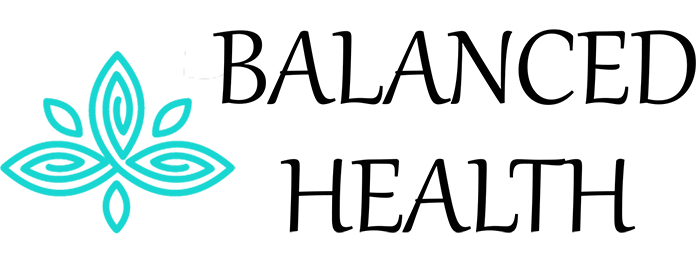How much do you know about zinc?
The essential nutrient promotes immune support, nervous system function, and metabolic health. This piece will offer an overview of what zinc is, the recommended daily allowance (RDA) of zinc, and the best form of this trace mineral.
What Is Zinc?
Zinc is the most prevalent trace mineral in the body after iron. In addition to strengthening the immune system and metabolic function, it promotes wound healing and plays a key role in people’s sense of taste, vision, and smell.
Found in every cell, zinc is also involved in reproduction, blood clotting, and insulin and thyroid function. The nutrient’s antioxidant properties help damage from free radicals—which contribute to aging—even going so far as to mitigate the damage they might have already caused.
Zinc is also a necessary cofactor for over 300 enzymes. In this way, it plays a key role in their overall functioning.
In short, zinc is very important. Continue reading to explore common food sources of zinc, and to understand just how much zinc you need for good health. We will even offer much-needed insight into zinc supplementation.
Food Sources of Zinc
The human body absorbs 20-40% of the zinc found in the foods we eat.
Zinc from animal sources like fish and poultry—or from supplements—is absorbed more efficiently than zinc from plant-based food sources like whole grains. This is because phytates, which are more prevalent in plant-based foods, bind zinc and hinder its absorption.
Experts believe zinc is ideally consumed with a meal high in protein. Common food sources of zinc include:
• Oysters (the richest source of zinc) and other shellfish
• Shrimp and crab
• Red meat and poultry
• Cheese (particularly ricotta, gouda, and Swiss)
• Legumes (particularly soybeans, peanuts, pinto beans, and lima beans)
• Miso and tofu
• Green beans and cooked leafy greens
• Mushrooms
• Pumpkin
• Tahini
• Sunflower seeds
• Whole grains and fortified breakfast cereals
• Brewer’s yeast
Most people consume enough zinc simply by eating a balanced diet. Others make sure they get enough zinc via supplementation. Regardless of the path you choose, it’s important to note that zinc lowers the amount of copper the body can absorb, and that high doses of zinc may cause a copper deficiency.
Many healthcare professionals recommend taking 2 mg of copper in addition to any zinc supplement. At Balanced Health, our Ionic Zinc Complex supplement includes copper to mitigate this effect.
Recommended Amount of Zinc
The recommended daily amount of zinc is 8 milligrams (mg) for adult women and 11 mg for adult men. Pregnant and lactating women have an increased RDA of 11 mg and 12 mg, respectively.
The National Institutes of Health has stated that 40 mg of zinc per day is the tolerable upper intake level (UL) for adults, and that 4 mg of daily zinc is the UL for infants under six months.
People in industrialized regions are very rarely severely deficient in zinc. Lower levels of zinc may be found in the elderly, in people with alcoholism or anorexia, and in people adhering to a very strict diet. Malabsorption conditions like celiac disease and Crohn’s disease may also result in a zinc deficiency.
Signs of zinc deficiency may include:
• Loss of appetite
• Weight loss or slowed growth
• Loss of taste or smell
• Hair thinning or loss
• Slow wound healing
• Skin issues including acne
• White spots on the fingernails
Consult your doctor if you think you may be experiencing a zinc deficiency.
Benefits of Zinc
Getting enough zinc is crucial to good health. The benefits of this trace mineral include the following:
Zinc for immune function
From boosting immune health to supporting a healthy inflammation response, zinc is an antioxidant that has been known to support the body's immune response.
Zinc for wound healing
Researchers have found that zinc can help maintain the integrity of both the skin and the mucosal membranes, and even promote wound healing. Those with chronic skin ulcers may be prescribed zinc.
Zinc for blood sugar management
Getting enough zinc is a vital part of a healthy bodies management of blood sugar.
Zinc for heart health
Zinc has been found to promote heart health, lowering “bad” LDL cholesterol and blood triglyceride levels. Meeting the RDA for zinc could be a seamless support a healthy cardiovascular system.
Zinc for skin health
Getting enough of this trace mineral has been found to improve skin health.
Introducing the Best Form of Zinc
What if you could get more out of your zinc supplement? Balanced Health Ionic Zinc Complex drops are formulated with essential trace minerals like copper and magnesium, promoting a number of benefits in the body.
That’s not all. The liquid drops are a more bioavailable form of zinc sulfate, bypassing the gut for better absorption. Vegan, gluten, and dairy-free, they’re considered more effective than pills, capsules and tablets.1 The drops are also free from artificial flavors, and a sound way to work toward good health.
Our Ionic Zinc Complex supplement features 30 doses per bottle, with natural glycerin and peppermint adding to the overall experience. A reminder that before you start a new supplement, you will want to speak with a medical professional. Your healthcare provider can point you in the right direction, guiding you through your options and helping to evaluate the potential risks involved in supplementation.
So, are you ready to get started on your path to better zinc absorption? Do you have questions about our zinc supplements, or about supplementation in general? Please contact us for more information.
References:
1 These statements have not been evaluated by the Food and Drug Administration.

